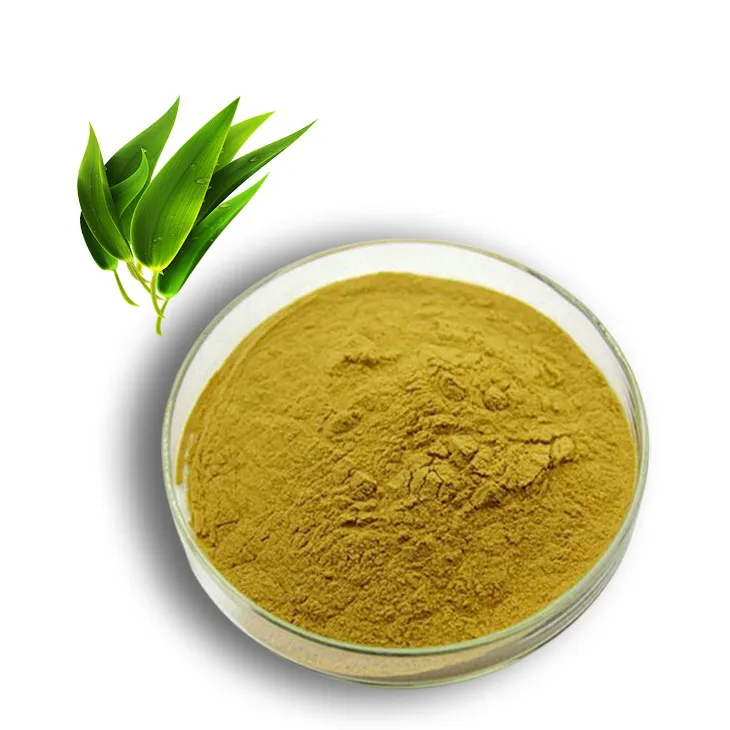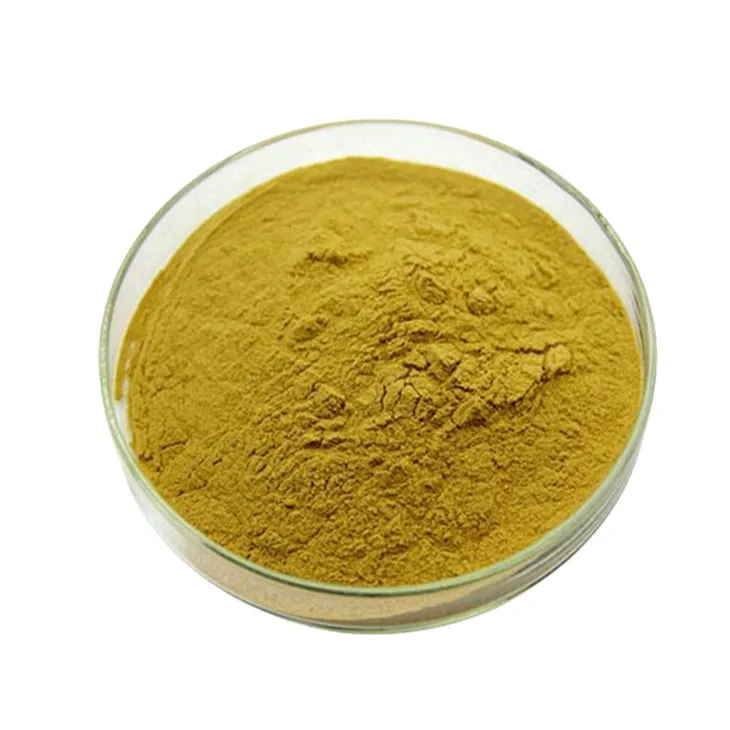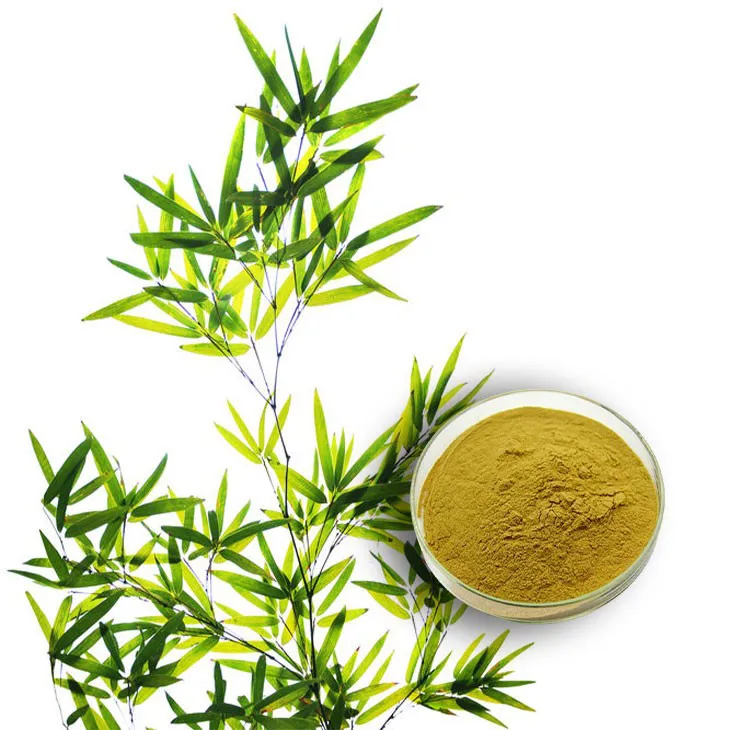- 0086-571-85302990
- sales@greenskybio.com
All the benefits of bamboo leaf extract.
2024-11-12

Introduction
Bamboo, a plant known for its versatility and rapid growth, has been used in various cultures for centuries. Bamboo Leaf extract, in particular, has emerged as a substance with numerous potential health benefits. In recent years, scientific research has been increasingly focused on uncovering the various properties of this extract, which could have far - reaching implications for human health and well - being.

Immune - System Enhancement
Bioactive Compounds and Immunity Bamboo Leaf extract contains a variety of bioactive compounds that play a crucial role in enhancing the immune system. These compounds interact with the body's cells and signaling pathways to boost the body's natural defense mechanisms against pathogens. For example, flavonoids present in the extract have antioxidant properties. Antioxidants are important for maintaining the health of immune cells as they help to neutralize free radicals that can damage these cells. By protecting immune cells from oxidative stress, flavonoids contribute to the overall efficiency of the immune system.
Stimulation of Immune Response The extract also has the ability to stimulate the production of immune cells such as lymphocytes and macrophages. Lymphocytes are a type of white blood cell that plays a central role in the adaptive immune response. Macrophages, on the other hand, are part of the innate immune system and are responsible for engulfing and destroying foreign invaders. By promoting the production of these key immune cells, Bamboo Leaf extract helps to strengthen the body's first line of defense against infections.

Cardiovascular Health Benefits
Blood Pressure Regulation One of the significant benefits of bamboo leaf extract in relation to cardiovascular health is its potential to regulate blood pressure. High blood pressure is a major risk factor for various cardiovascular diseases such as heart attacks and strokes. Compounds in the extract may act on the blood vessels, causing them to relax. This relaxation of the blood vessels leads to a reduction in peripheral resistance, which in turn helps to lower blood pressure. For example, certain alkaloids in the extract have been shown to have vasodilatory effects, which means they can widen the blood vessels.
Cholesterol Management Another important aspect of bamboo leaf extract's role in cardiovascular health is its impact on cholesterol levels. Elevated levels of cholesterol, especially low - density lipoprotein (LDL) cholesterol, are associated with an increased risk of atherosclerosis, a condition where plaque builds up in the arteries. The extract may help in reducing LDL cholesterol levels while maintaining or even increasing high - density lipoprotein (HDL) cholesterol levels. HDL cholesterol is often referred to as "good" cholesterol as it helps to remove LDL cholesterol from the bloodstream. The mechanism by which bamboo leaf extract affects cholesterol metabolism may involve interference with the absorption of dietary cholesterol in the intestines or modulation of the liver's cholesterol - synthesizing enzymes.

Anti - microbial Properties
Bacterial Inhibition Bamboo leaf extract has demonstrated potent anti - microbial properties, particularly against harmful bacteria. It can inhibit the growth and reproduction of bacteria through multiple mechanisms. Some of the bioactive compounds in the extract may disrupt the bacterial cell membrane, causing leakage of intracellular components and ultimately leading to cell death. For instance, phenolic acids in the extract have been shown to have antibacterial activity against common pathogenic bacteria such as Escherichia coli and Staphylococcus aureus. These bacteria are often associated with various infections, including urinary tract infections and skin infections.
Fungal and Viral Inhibition In addition to its antibacterial effects, bamboo leaf extract also shows promise in inhibiting the growth of fungi and viruses. Fungal infections can be difficult to treat, especially in immunocompromised individuals. The extract may offer an alternative or complementary treatment option. Regarding viruses, while more research is needed, preliminary studies suggest that certain components of the extract can interfere with the viral replication cycle. For example, it may prevent the virus from attaching to host cells or inhibit the synthesis of viral proteins.

Anti - inflammatory Effects
Inflammatory Response Modulation Chronic inflammation is associated with many diseases, including cardiovascular diseases, diabetes, and certain cancers. Bamboo leaf extract has been found to possess anti - inflammatory properties. It can modulate the body's inflammatory response by regulating the production of inflammatory mediators such as cytokines. Cytokines are small proteins that play a key role in the immune and inflammatory responses. By reducing the overproduction of pro - inflammatory cytokines, the extract helps to dampen the inflammatory process and prevent excessive tissue damage.
Benefits for Inflammatory Conditions For individuals with inflammatory conditions such as arthritis, bamboo leaf extract may offer some relief. Arthritis is characterized by inflammation in the joints, which can cause pain, swelling, and reduced mobility. The anti - inflammatory effects of the extract may help to reduce joint inflammation, alleviate pain, and improve joint function. Additionally, in conditions like inflammatory bowel disease, where there is chronic inflammation in the gastrointestinal tract, the extract may help to soothe the inflamed tissues and improve digestive health.
Antioxidant Activity
Free Radical Scavenging Bamboo leaf extract is rich in antioxidants, which are substances that can scavenge free radicals. Free radicals are highly reactive molecules that can cause damage to cells, proteins, and DNA. This damage can lead to various health problems, including premature aging, cancer, and neurodegenerative diseases. The antioxidants in the extract, such as flavonoids and phenolic compounds, can donate electrons to free radicals, thereby neutralizing them and preventing them from causing further damage.
Cellular Protection By neutralizing free radicals, bamboo leaf extract provides protection to cells throughout the body. This is especially important for cells that are constantly exposed to oxidative stress, such as nerve cells and skin cells. For nerve cells, antioxidant protection can help to prevent neurodegenerative diseases such as Alzheimer's and Parkinson's. In the case of skin cells, antioxidants can help to maintain skin health, reduce the appearance of wrinkles, and protect against skin cancer.
Potential Applications in Diabetes Management
Blood Sugar Regulation Some studies suggest that bamboo leaf extract may play a role in blood sugar regulation, which is crucial for diabetes management. It may help to improve insulin sensitivity, allowing cells to more effectively take up glucose from the bloodstream. This could potentially reduce blood sugar levels in diabetic patients. The mechanisms underlying this effect may involve the modulation of insulin signaling pathways or the regulation of glucose - metabolizing enzymes in the body.
Complications Prevention Diabetes is associated with various complications, such as cardiovascular diseases, kidney disease, and nerve damage. The antioxidant and anti - inflammatory properties of bamboo leaf extract may help to prevent these complications. By reducing oxidative stress and inflammation, the extract can protect the blood vessels, kidneys, and nerves from damage, thereby improving the quality of life for diabetic patients.
Conclusion
Bamboo leaf extract offers a wide range of potential benefits, from enhancing the immune system to promoting cardiovascular health, combating microbial infections, reducing inflammation, providing antioxidant protection, and potentially assisting in diabetes management. However, more research is still needed to fully understand the mechanisms of action of the various bioactive compounds in the extract and to determine the optimal dosage and forms of administration for different health conditions. With further scientific exploration, bamboo leaf extract may become an important natural remedy in the field of health and wellness.
FAQ:
What are the main bioactive compounds in bamboo leaf extract that enhance the immune system?
Bamboo leaf extract contains various bioactive compounds such as flavonoids and phenolic acids. Flavonoids, for example, are known for their antioxidant and immunomodulatory properties. These compounds can stimulate the immune cells, like macrophages and lymphocytes, to function more effectively, thereby enhancing the overall immune system.
How does bamboo leaf extract help in reducing blood pressure?
It may work through multiple mechanisms. Some components in the bamboo leaf extract can cause relaxation of the blood vessels. When the blood vessels relax, the resistance to blood flow decreases, which in turn helps in reducing blood pressure. Additionally, it might also influence the hormonal regulation related to blood pressure control.
Can bamboo leaf extract completely replace cholesterol - lowering medications?
No. While bamboo leaf extract has shown potential in reducing cholesterol levels, it cannot completely replace cholesterol - lowering medications. It can be used as a complementary approach. The effect of the extract on cholesterol reduction may not be as strong as some prescribed medications. However, it can contribute to overall cardiovascular health when combined with a healthy diet and lifestyle.
What types of harmful microorganisms can bamboo leaf extract inhibit?
Bamboo leaf extract can inhibit a wide range of harmful microorganisms. It has been shown to be effective against various bacteria such as Escherichia coli and Staphylococcus aureus. In terms of fungi, it can inhibit the growth of Candida albicans. Regarding viruses, it may have inhibitory effects on some common viruses, although more research is needed to fully understand its antiviral mechanisms.
Is bamboo leaf extract safe for long - term use?
Generally, when used in appropriate amounts, bamboo leaf extract is considered safe for long - term use. However, some people may experience mild side effects such as digestive discomfort. It is always advisable to consult a healthcare professional before starting long - term use, especially for those with pre - existing medical conditions or those taking other medications.
Related literature
- The Bioactive Compounds and Health Benefits of Bamboo Leaf Extract"
- "Bamboo Leaf Extract: A Promising Natural Product for Cardiovascular Health"
- "Antimicrobial Properties of Bamboo Leaf Extract: A Review"
- ▶ Hesperidin
- ▶ citrus bioflavonoids
- ▶ plant extract
- ▶ lycopene
- ▶ Diosmin
- ▶ Grape seed extract
- ▶ Sea buckthorn Juice Powder
- ▶ Beetroot powder
- ▶ Hops Extract
- ▶ Artichoke Extract
- ▶ Reishi mushroom extract
- ▶ Astaxanthin
- ▶ Green Tea Extract
- ▶ Curcumin Extract
- ▶ Horse Chestnut Extract
- ▶ Other Problems
- ▶ Boswellia Serrata Extract
- ▶ Resveratrol Extract
- ▶ Marigold Extract
- ▶ Grape Leaf Extract
- ▶ blog3
- ▶ blog4
- ▶ blog5
-
Organic Tongkat Ali extract powder factory.
2024-11-12
-
How to make powder with ashwagandha extract.
2024-11-12
-
Rosehip extract manufacturers from China.
2024-11-12
-
The best cat's claw extract in nature.
2024-11-12
-
Chinese Dandelion Leaf Extract Suppliers.
2024-11-12
-
Coconut Water Powder
2024-11-12
-
Kelp Extract Powder
2024-11-12
-
Europen Bilberry Extract
2024-11-12
-
Calendula Extract
2024-11-12
-
Bitter Melon Extract
2024-11-12
-
Stevia Extract
2024-11-12
-
Maca Extract
2024-11-12
-
Chasteberry Extract
2024-11-12
-
Citrus bioflavonoids
2024-11-12
-
Maitake Mushroom Extract
2024-11-12





















